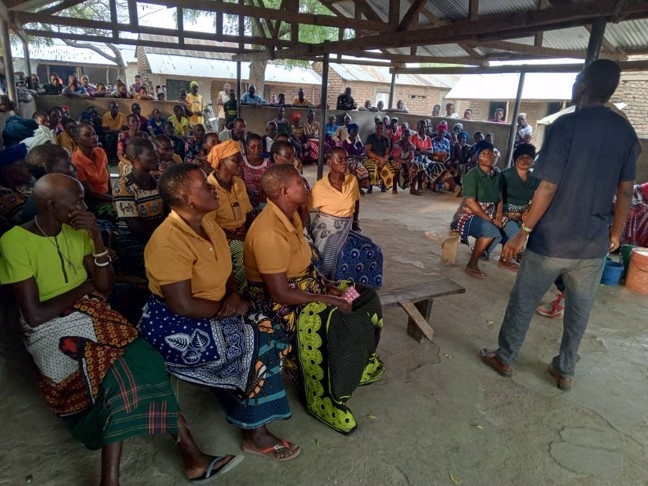20.10.2025
Public Awareness Debates on Women’s Land Rights
Problem & solution
Women in Songwe District face systemic barriers to land ownership despite legal protections under Tanzania’s 1995 National Land Policy and Village Land Act No. 5 of 1999. Cultural norms, lack of awareness, and poor representation in Village Land Tribunals prevent women from exercising their rights. Many lack Certificates of Customary Rights of Occupancy (CCROs), and decisions on land governance often exclude women. These challenges perpetuate gender inequality and limit women’s economic independence.
The solution was to conduct public debates and legal awareness sessions that educated communities, challenged established norms, and promoted joint land ownership between men and women.

the experience
ADP Mbozi conducted public debates in 13 villages of Songwe District. The activities included:
- Community Engagement through Public Debates: ADP Mbozi organized inclusive forums where women, men, and local leaders openly discussed barriers to women’s land rights. These debates created a safe space for dialogue and helped challenge established norms.
- Legal Awareness and Expert Guidance: Facilitators, including legal experts, explained key provisions of the Village Land Act and addressed misconceptions. Interactive Q&A sessions allowed participants to seek clarification and relate the law to their daily realities.
- Role of Local Leaders and Institutions: Village leaders and land tribunal members were actively involved, bridging gaps between formal law and customary practices. Their participation was crucial for sustainability and trust-building.
- Use of Learning Materials: Simplified leaflets and posters were distributed to reinforce learning beyond the sessions. These IEC (Information, Education and Communication) materials served as reference points for families and communities.
Challenges
- Patriarchal inheritance customs: Women often excluded from land ownership because property is supposed to remain in the male lineage
- Double standards: Widows often lose rights to land if they remarry, while men retain theirs
- Poor representation of women in Village Land Tribunals
- Low uptake of CCRO registration and mostly done by men
Impact
- 1,921 participants sensitized on women’s land rights
- Men began adding wives’ names to CCROs for joint ownership
- Increased dialogue on gender equality in land governance
- Women gained confidence to claim and defend land rights
Lessons Learned
- Public debates are effective for challenging established norms: e.g. some men initially resisted joint land ownership but changed behaviour after understanding legal and social benefits
- Legal clarity is essential: Many participants misunderstood the Village Land Act; expert-led Q&A and feedback loops corrected these gaps
- Tribunals with only symbolic female members fail: real representation and active participation is supported by mentorship and confidence-building

